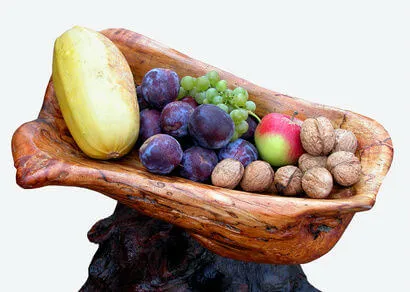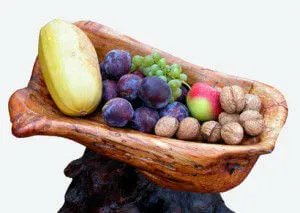
- Share on Facebook101
- Share on Pinterest
- Share on Twitter
For years you’ve probably heard that the secret to a healthy body was to count calories. Calorie counts are on everything now including most restaurant menus. But is all of this number crunching really worth the effort? The answer: No! And for two very important reasons.
1. Calorie Counting Won’t Make You Thin.
Losing or gaining weight really isn’t that complicated of a science. When you eat more calories than you burn, you gain weight. When you burn more calories than you eat, you lose weight. Simple right? Well it was simple when most of our food supply was actually food and not a mish mash of highly processed and chemical-ridden food imposters.
We have become a nation practically obsessed with number crunching. But countless studies over the years have shown that diets involving calorie logging and calculating ultimately fail.
The reason? The emphasis is on quantity and not on quality. Most diet products on the market today are low in fat but full of highly processed refined carbohydrates. A low-calorie granola bar may have only 90 calories but comes with a laundry list of other unhealthy additives. And let’s face it, do those bars ever keep you full for longer than 20 minutes?
A handful of raw nuts (historically a dieter’s no-no) provide healthy fats and oils that actually satisfy hunger while nourishing the body with vitamins and minerals. And whole fruits, which are often passed over for fruit-flavored low-calorie beverages, actually satisfy your sweet tooth whereas aspartame and red #40 only tease your tongue and keep you longing for another sweet. It’s no wonder dieters are always hungry, their bodies want food, not chemicals!
2. Calorie Counting Won’t Make You Healthy.
When did we begin to equate thin with healthy? Somewhere along the lines our nation came to believe that they should sacrifice “fattening” foods for their imposter “diet” cousins.
With that shift, the quality of our food was lost. This is a shame since research shows that the quality of one’s diet may be more important to overall health than the number of calories consumed. Over a four-year period, individuals were served either extra portions of processed foods or whole foods. Those served the processed foods showed significant weight gain, while those fed the whole foods showed significant weight loss.
And let’s not forget that all of that restricting is frustrating. When you eat whole foods (primarily organic fruits, vegetables, nuts, seeds and meats) you’re nourishing your body with the foods it was meant to consume. You don’t have to restrict and count because your body can recognize and process what you’ve fed it.
 And contrary to what you may have heard, fats and proteins are actually good for you. They provide satiety that keep you from yearning for more and help build lean muscle, a key factor in a strong skeletal system.
And contrary to what you may have heard, fats and proteins are actually good for you. They provide satiety that keep you from yearning for more and help build lean muscle, a key factor in a strong skeletal system.
So instead of counting calories try counting the servings of whole organic foods you’re getting each day. Not only will you naturally achieve a healthy weight but you’ll never go hungry again.
-The Alternative Daily
Sources:
http://www.theatlantic.com/health/archive/2011/06/10-foods-that-drive-weight-gain-and- loss-identified-by-harvard/240933/#slide1
http://www.hsph.harvard.edu/obesity-prevention-source/obesity-causes/diet-and-weight/
http://www.huffingtonpost.com/kathy-freston/the-weight-loss-hype-why_b_178873.html
http://ajcn.nutrition.org/content/early/2013/06/26/ajcn.113.064113.abstract
- Share on Facebook101
- Share on Pinterest
- Share on Twitter

